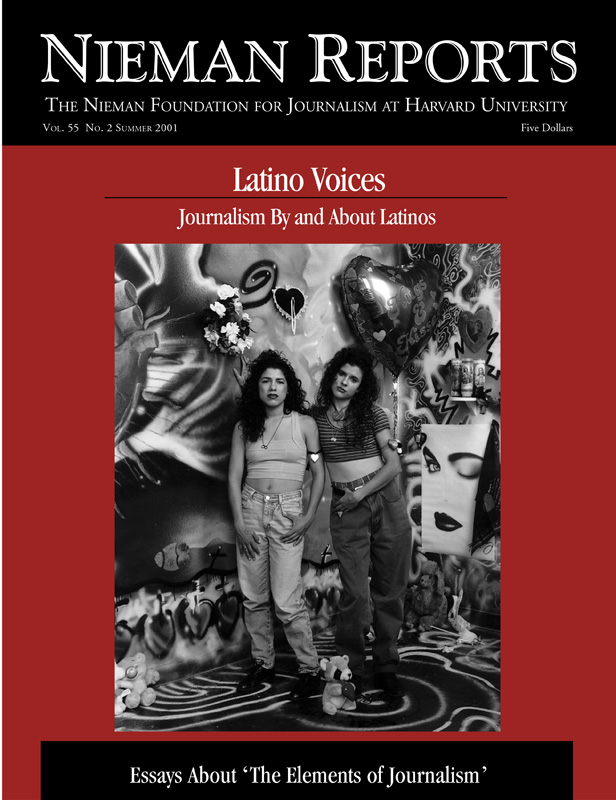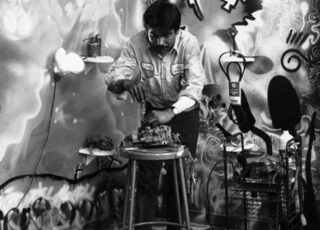ISSUE
Summer 2001

Latino Voices: Journalism By and About Latinos
How is the rapid increase in Hispanic American population affecting communities? What are the economic, social, cultural and educational benefits and hardships brought about by this significant demographic shift? Will the numbers and force of Hispanic voters alter the nation’s political landscape? The questions to be raised and stories to be told vary as greatly as do people portrayed by the word “Hispanic.”
